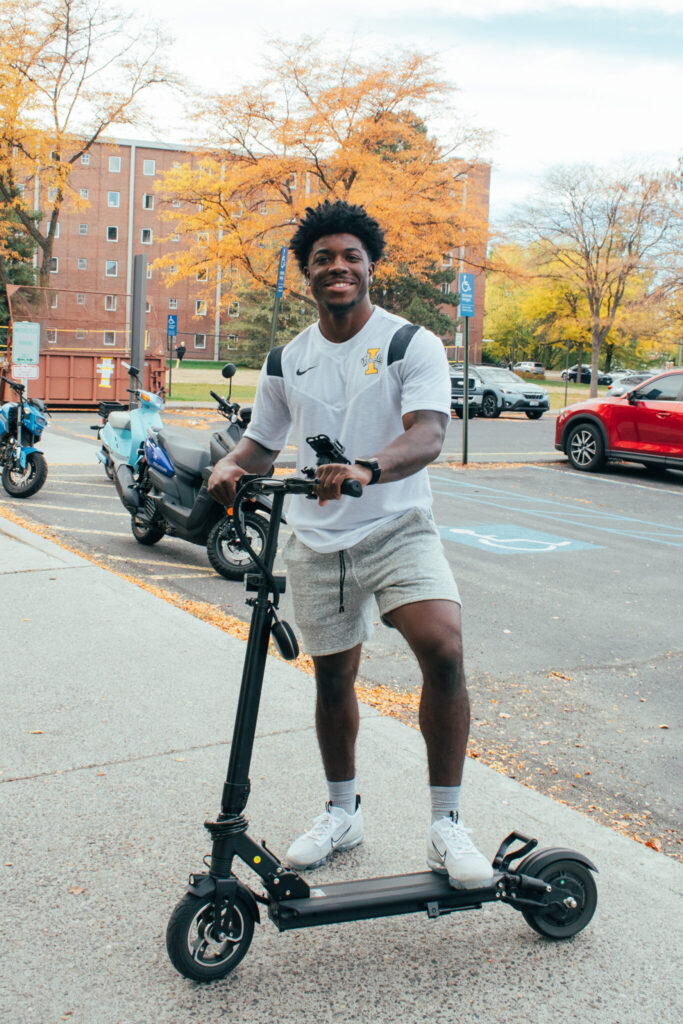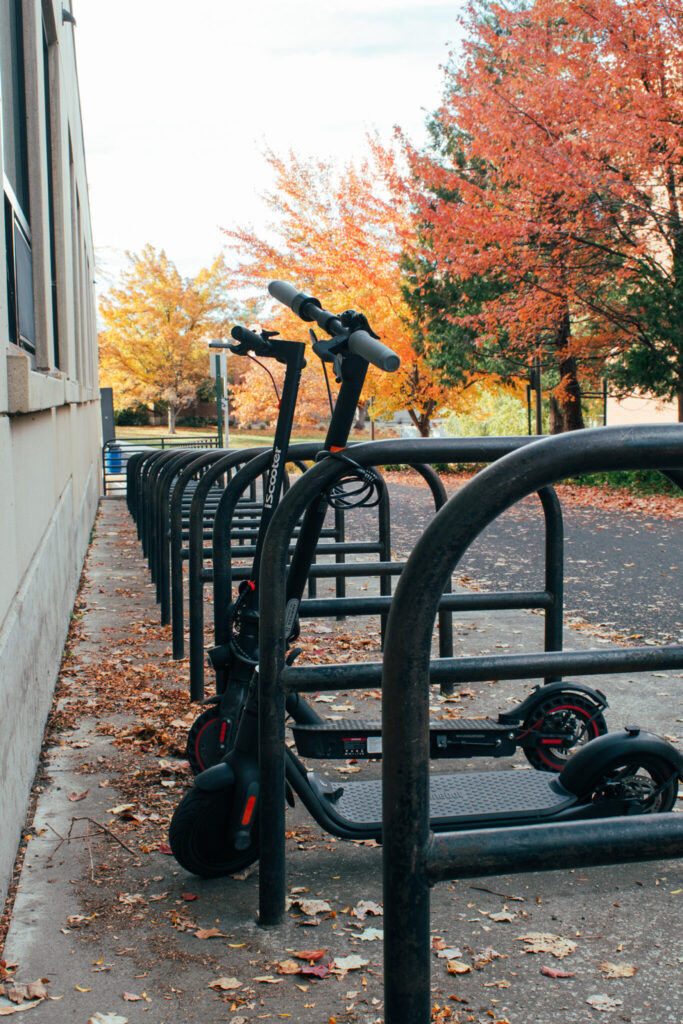CHATTANOOGA, TN (mocsnews.com)— Electric scooters have become increasingly popular among University of Tennessee at Chattanooga (UTC) students, offering a convenient and eco-friendly way to get around campus. But as these devices zoom across campus, they raise questions about safety, environmental impact, and overall student experience.
Many UTC students are drawn to electric scooters for their convenience and affordability. “It’s faster than walking, and I don’t have to worry about parking,” said sophomore Alex Carter, who uses his scooter daily. He emphasized that the scooters are especially useful for getting to classes on time, noting that it’s also a fun way to travel. However, he admitted that riding can feel dangerous at times, especially with crowded sidewalks and uneven pathways.

Student Riding Electric Scooter Around UTC Campus by Santiago Nunez
Another student described scooters as “game-changers,” because they allow students to bypass campus traffic. This convenience, however, can come with risks, as not all areas are scooter-friendly. According to UTC Campus Safety Officer Jeffery Muzyn, safety regulations are crucial to ensuring electric scooters don’t become a campus hazard. “We’ve seen an increase in minor accidents involving scooters, especially on crowded pathways,” Muzyn explained. “We encourage students to wear helmets and follow campus speed limits.”

Student Riding Electric Scooter Around Campus by Santiago Nunez
He also mentioned that the university is exploring initiatives to improve safety, such as wider designated scooter lanes and more visible signage. Despite these efforts, Muzyn acknowledges that enforcing these rules can be challenging, as many students are unaware of the guidelines. “Our goal is to make sure scooters remain a safe transportation option, but it requires cooperation from everyone,” he added.
For an environmental perspective, Jennifer Taylor, an Environmental Science professor at UTC, spoke about the impact of electric scooters on campus sustainability efforts. “Scooters produce zero emissions while in use, making them a better alternative than cars for short distances,” she explained. However, Taylor pointed out that scooters still have an environmental footprint, as their batteries contain rare metals that require extensive mining.

Electric Scooters Lined Up On A Bike Rack by Santiago Nunez
Taylor also noted that the lifespan of these scooters can be short, meaning frequent replacements and potentially more electronic waste. “The impact on the environment really depends on how they’re maintained and disposed of,” she said. Despite the challenges, Taylor believes that electric scooters can contribute to a greener campus if used responsibly.
Electric scooters are clearly reshaping UTC’s campus culture, offering both benefits and challenges. For students, they represent a fast, eco-friendly option that suits the campus’s needs. Yet, as with any new technology, their adoption comes with a need for awareness and responsibility. With continued efforts from campus safety officials and sustainable practices, scooters could become a permanent fixture in college life, allowing students to ride around campus without leaving a carbon footprint.
Related Stories:
https://www.highereddive.com/news/banning-electric-scooters-on-campus/639633
https://news.vt.edu/articles/2024/10/aad-kennedy-e-scooter-pilot-studio.html
https://news.vt.edu/articles/2023/07/vtti-research-escooter-results.html
 Mocs News Reporting the news that matters most to UTC
Mocs News Reporting the news that matters most to UTC




